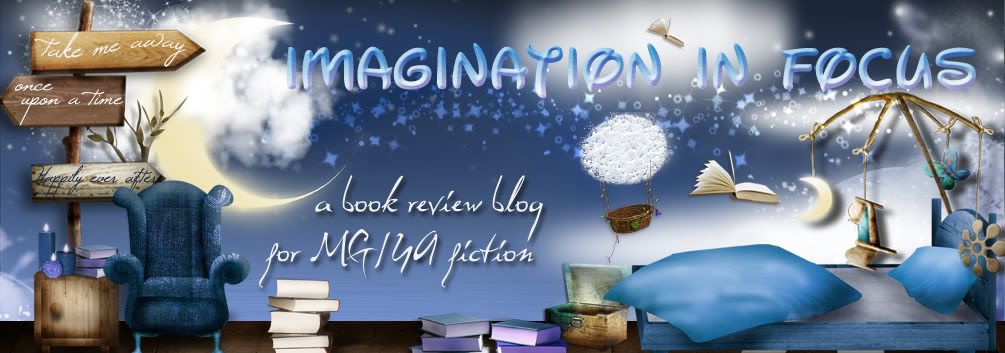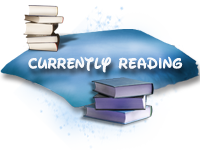I'm still not done reading the
WSJ's article that has managed to get the book-blogging community buzzing. It's always something, isn't it? A few months ago it was that stuff in Missouri, now it's this...I've been used to newspapers (the
NY Times and
USA Today are the worst) spinning their own agendas so I don't usually take articles very seriously, but this one surprised me. I assure you, my mental pendulum will swing both ways, so all I ask is that you reserve judgment till you get through the entire post/treatise/diatribe/whathaveyou...
In this blog post, I'm going to do a little something different (although I seriously doubt anyone wants to hear anything that's not 100% ' OMG WSJ IS WRONG!') and talk about where the WSJ gets it right and where it gets it completely wrong. That's what they teach you in debate: that rarely is there ever a totally-right or totally-wrong issue. Same applies here.
On one hand, I do feel very relieved that this article has been written. It's what the literary community so often forgets: consumers (whether they be parents, teens, or interested adult readers) have absolutely no way of knowing what is in a book before they read it. And while there is this attitude of "so what? anything goes in books," that is not the only attitude out there. Real parents, real teachers, real teens, and real adult readers may care a great deal. For us, it's not "anything goes." For us, it's not "reality for some is reality for all," and for goodness sake, it certainly isn't "any book is better than no book!" That is so flipping ignorant. And it can't be both ways. If authors have the right to write whatever they want, with no moral boundary that says 'this is too far,' then consumers have the right to symbolically say, "What the...?! Are you for real?!"
The part that I think is the most insightful is:
Yet it is also possible—indeed, likely—that books focusing on pathologies help normalize them and, in the case of self-harm, may even spread their plausibility and likelihood to young people who might otherwise never have imagined such extreme measures. Self-destructive adolescent behaviors are observably infectious and have periods of vogue. That is not to discount the real suffering that some young people endure; it is an argument for taking care.
So yes, I do share the WSJ's "puzzlement" over why in the world this genre can be so explicit and in-your-face with quite a lot of disturbing themes, situations, and content. Yeah, it freaketh me out. And yeah, there is little-to-no way to know before diving in. And that's where my issue is: some people want to know, and there is no way for them to know. And my issue is with the idea that teenagers - with developing brains and personalities - are ready for anything. That they can handle anything. That just because reality is sometimes horrible and ugly is an open invitation to demonstrate, explicitly, just how ugly it can get. I need to say, though, that the #1 reason why I am sympathetic to this article is because it appeared in the Wall Street Journal, one of America's most important newspapers. If this was the work of some blogger, I would have shrugged and said, "She's got some points, but geez...dramatic much?"
I already shared my favorite part of the article. Now I'll share my
least favorite: That part in the beginning where the poor sweet mama couldn't find a book in the
whole YA section. I don't buy that for one second! Geez, the last time I went to a bookstore (NYC's Books of Wonder), I left with 10 books. And I'm one of those 'stay away from dark stuff' types. If
I can find an armful of books, anyone can! Did she not see Maggie Stiefvater's
Shiver? Or Michael Scott's
Secrets of the Immortal Nicolas Flamel? What about Neal Shusterman's books, or Cassandra Clare's shiny, flashy, can't-miss-em books? Did she see
The Dark Divine or
The Maze Runner or
Paranormalcy or
Prophecy of the Sisters or FOR CRYING OUT LOUD
anything with the name "Rick Riordan" on it? What about
Matched or
Divergent or the freaking
BOOK THIEF?
And boy, nothing says "dark and disturbing" like that
Artemis Fowl! For goodness sake. Yes, I'm the type of reader who will agree with the WSJ that there is some weird, crazy...
stuff in YA, but the majority of books are thrilling, enjoyable, uplifting, and written by some of the most gifted, capable, and endearing authors in the industry. If some editors and publicists are impervious to shock or sensibility, I'd reckon there are twice as many who actually do give a wang (at least, maybe a little wang) about what they're releasing into the market.
What do I wish the WSJ had done differently? First of all, part of me is glad that they actually named names and to an extent, held books and authors accountable for the written word. Like I said, it can't be both ways. It can't be acceptance and validation without some reservation. But I wished that they would have ended their article by praising, or even just acknowledging, the authors and books that represent the brighter parts of the genre. Not everything is drugs, sex, cutting, despair, and other unspeakable things. The image they painted is a truth, not the whole truth. It does not come close to describing Veronica Roth and her Divergent, or Kelly Creagh and her Nevermore, or Kersten Hamilton and her Tyger Tyger, or Neal Shusterman and his Unwind, or Bree Despain and her Dark Divine or Patrick Ness and his Chaos Walking...I could go on and on and on and on.
So if I had to draw a line in the sand, would I side with them, or with the pro-#YAsaves trend? Both, actually. Because this isn't an either-or issue. I said I was glad that this article was written. Yes, I am, because I do believe that sometimes 'dark' is 'too dark.' And I do believe that people should be made aware of the fact that some subgenres of YA are pretty... disturbing. And I think something needs to be done to better inform consumers. I think that if people weren't so often surprised or caught off guard, they'd be less hostile to books that they'd just as soon skip.
With most issues, I think that the most truthful realization lies somewhere in the middle. Unfortunately, I can't completely jump of the "WSJ is utterly wrong" bandwagon because, as someone who is often disillusioned by not just the openness but also the seeming permissiveness of literature aimed at Young Adults, I do think that information is a good thing. I do think that consumers need to be made aware of the direction that some books are taking, and how the envelope sure is being pushed far by some books and some authors. But in the very next sentence, I will defend those whose work does not apply at all to this article. As someone who reads YA almost exclusively, I'll be the first to say that no, not every book is for everybody (and it is my complete personal opinion that an even smaller number of books aren't for anybody), but I'll also be the first to say that this is the most diverse, inventive, creative, and lively genre out there.
PS - authors have been sharing their thoughts all day, but the one that really speaks out above the rest is Veronica Roth's post. What she has to say is not only insightful and eloquent, it's also extremely reasonable. Without trying to sound over the top, she keeps demonstrating over and over what a class-act author she is.
Sorry for being complicated,















7 shout-outs!:
I understand the other side with the parents and everything; I just think attacking the whole YA section and saying the dark stuff encourages dark stuff in the real world was ridiculous. And since it was published in a newspaper, it makes me headdesk.
Also, yay for both of us using Artemis Fowl as an example of "Could you really not find anything dark!?" in the YA section. Baha! :)
I was going to write a rebuttle blog but youve said everythong I would have right down to mentioning the books I would have
and its true there are a good amount of disterbing things in YA...but thats only like what 20% of whats out there what about the paranormal what about Nevermore and the wolves of mercy falls and Timeless and almost anything paranormal (parnormal is "dark" but its never Too dark)
this was really amazing and insightful thank you
the YA author, James Dashner, tweeted something like, "the writer of that article must be Matilda's mother!" I couldn't agree more.
Great post, Amelia. I feel no need to write a post about this topic, because I feel like I won't be as eloquent as you are with expressing myself! Haha.
Thanks, Jillian! That really means a lot to me, because on the one hand I agree with the WSJ that YA has become awfully dark lately, and is protecting the "dark and gritty" one step away from enabling it...but generalizations bother me. Your comment really means a great deal!
*hugs*
I actually understand both sides too, but I really think that it's no reason to waste a perfectly good WSJ space for such a shallow issue. That mom is just probably too lazy to go read some of the books' synopses and just generalized all the books as 'dark and violent.' I have a stash of YA books that prove otherwise. Plus, my mom reads my books and she enjoys them a lot, even some of the 'dark and violent' ones.
Of course, there are some books that we could have done without, but if you don't like a book, then don't read it. No need to write a WSJ article about it and have it blown out of proportion.
@ Nina - You're right, I think it's very strange that a lady could just look at the covers of books in a store and somehow know that none of them were good enough. That's very suspect.
Although, I used to say that if people didn't like books, or stuff in books, they didn't have to read them, BUT...how are they to know? For example, I had no idea some of the er, darker aspects of Lauren Myracle's books. Judging by her books' cover designs, they look cute and girly (some of them). I think that what WSJ was trying to do was bring to light just how many previously-taboo subjects are being dealt with in a very "show-all-hide-nothing" light, and it is a bit shocking. I'm grateful for the points they did make, but I also think that part of journalism is telling the full story, and they really should have spotlighted the other side of YA, instead of just making a generalization.
I actually quite agree with all the points you've made, but especially this one: "I think that if people weren't so often surprised or caught off guard, they'd be less hostile to books that they'd just as soon skip." I don't like very, very dark issue books and will generally avoid them, unless I'm *really* curious, but - yeah - nothing makes me mad like NOT KNOWING what I'm getting myself in for, then ending up reading a book that's HIGHLY disturbing.
While for the most part everyone's railing against this article, I have to say that - while there are *so* many wonderful YA books out there these days; light / dark / whatever - there are times when I will read a one and be shocked that ANYONE would find it appropriate for teenagers. I'm not saying that we need to start banning books, I'm not convinced that teenagers would emulate bad behaviour just because they've read about it, and it's good to address issues if authors do so respectfully, but ... kidnapping? incest? and that book about the girl taken by the paedophile, then made to help him find a new victim?
I'm sorry, but that's the kind of stuff that does more harm than good. If I'd read some of those books when I was younger, I'd have been somewhat traumatised. There'd definitely have nightmares. I might have become overly fearful of situations that - for the most part - would have been completely out of control. And I wasn't the meekest teenager by a mile.
Some topics really are too much, and publishers should maybe start considering that dark and edgy and provocative is not necessarily appropriate. Sometimes it's just plain Going Too Far, especially for the intended audience.
Post a Comment